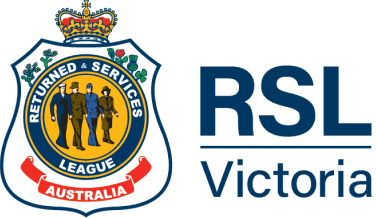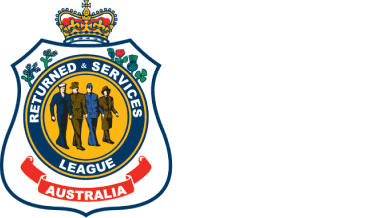Photo Credit: Jennifer Nagy
To and from the furthest and most remote corners of Australia’s vast landscape, the iconic Royal Flying Doctor Service (RFDS) provides lifesaving services.
For more than 90 years, the RFDS has been taking to the skies thanks to the latest aviation, medical and communications technology along with, of course, dedicated teams of people in the air and on the ground.
The RFDS is proud that many of those are current or ex-serving defence personnel, who bring a unique skillset to their role in the organisation.
One member of the RFDS team is army veteran Dr Fergus Gardiner, known to his friends as Gus, who continues to fulfill his passion for a life of service.
“The army, I think, shaped me into the best version of myself.”
"I love wearing the RFDS uniform. I had the same feeling when I served as a full-time soldier."
Dr Fergus Gardiner
Gus believes, certainly in his case, that you can take the boy out of the army, not the army out of the man.
While he no longer jumps out of planes and helicopters as a paratrooper, his army skills stand him in good stead for his role as Director of the National Emergency Response for the RFDS.
“You often don’t realise how much your army training is ingrained in you. Small things, like the way you talk, the way you carry yourself, and I think the army sets a very good baseline standard and personality traits that will take you into other careers. Without my army experience, I certainly wouldn’t have had the dedication to then get into public health and medicine.”
Growing up in a remote area of New South Wales, Gus was a very active country boy. After graduating from school in 2004, he sought a career with the right cultural fit to channel his energy and passion.
"I always saw my stepfather, Colonel David Carpenter’s service and wanted to emulate that. But the reason I joined [the army] was because I always wanted to serve and to serve my country."
Dr Fergus Gardiner
His stepfather, someone he considered a role model and a significant influence in his life, recently passed from injuries sustained in the Vietnam War. Colonel Carpenter served for over 30 years with the Australian Defence Force.
Gus remembers seeing his stepfather march on ANZAC Day, and fondly remembers talking to the veterans down the main street of Yass.
“Hearing their war stories really appealed to me,” he says.
After finishing school, Gus served full-time with 3rd Battalion Royal Australian Regiment Australia. (3RAR). His most fulfilling moments were out on training exercises or on deployments.
“As a paratrooper, I also served in the Solomon Islands for the peacekeeping mission in 2006. I really enjoyed the engagement with community and hearing their stories - that really appealed to me. To also see some of the difficulties they were having, I call it ‘social determinants of health’, where some have lower health care, education and hearing about their history as well really appealed to me on that deployment.”
Motivated by his experiences on the ground, Gus believes it may have ultimately led him to his career change.
Following about five years of full-time service Gus began his transition out, taking up university studies while in reserves.
"Without my army experience, I certainly wouldn’t have had the dedication to get into public health and medicine. It gave me academic as well as physical skills and structure to my life that I could then apply to university."
Dr Fergus Gardiner
After graduating with a Medical Doctorate, Gus worked in teaching hospitals and within the Commonwealth Department of Health as a public health doctor or epidemiologist.
When an opportunity presented with the RFDS as the Director of Public Health and Research, it was his new calling.
“It was like the position was made for me. It was all about service and gaps in health care service.”
“When we think of Australia, we think of a fantastic health system, which we certainly do have, but there are areas in need within Australia. 40-odd-thousand people in our remote communities don’t have access to basic health care.”
Gus has made significant contributions in the six years he has been with the RFDS , including the establishment of multiple health care programs throughout remote Australia, ranging from mental health clinics to dental.
Throughout his time at the RFDS, Gus has worked alongside the ADF, including as a public health consultant with the 1st Close Health Battalion in Queensland. With the benefit of his lived experience with the ADF, Gus has successfully collaborated on several significant events, including the 2019-20 bushfires, where small teams were sent into affected regions to provide support.
When COVID began to emerge shortly after, Gus says he naturally gravitated towards being part of the national emergency response, Operation Shield, leveraging off his experiences at the Department of Health and Defence.
"I had the skills where I could step up and mobilise the RFDS response and that’s translated into over 7000 COVID retrievals, plus our involvement in over 250,000 vaccinations."
Dr Fergus Gardiner
At the start of the pandemic, the RFDS focused on COVID retrievals from remote communities, which then evolved into the vaccination phase of the response, which Gus has led on a national level.
Working closely with the Federal Government, Aboriginal Medical Services, Primary Health Networks, Local Hospital Districts and State governments, the RFDS has been able to service over 400 communities.
“Each community is different. My hometown of Yass is extremely different to communities you’d get in the Kimberleys and recognising that difference is essential, so each of those deployments was very, very different.”
He is especially proud of overseeing the first COVID vaccination clinic conducted out of the back of an aircraft in Australia, if not the world.
The clinic took place in Eucla, Western Australia, about 2500 kilometres from Perth and about 1500 from Adelaide.
“The team had to refuel on the way. They did a couple of vaccinations on the airstrip at Forest Station Airfield, flew on to Eucla and conducted another 50-odd, stayed overnight and flew back.”
"They sent me a picture where they landed on a road rather than an airstrip, opened up the back of the aircraft, pulled out the co-pilots seat for patients to sit on and provided vaccinations out the back of an aircraft essentially."
Dr Fergus Gardiner
Proud of the multiple teams he has on the ground across Australia, Gus reflects on the success of the past two years.
“We were asked to do a job by the Commonwealth Government of 80,000 vaccinations by December and we’ve well and truly surpassed that. It’s just a reflection of our individuals on the ground getting the job done day in, day out.”
Pushed to his adrenalin limits as a younger man in the army, he now gets his kicks from his day-to-day work.
“The ability to make real impact and real changes, based on feedback from community members is incredibly empowering.”
While the days are long, the circumstances challenging and in the face of fighting a global pandemic over and above the usual workload, Gus is surrounded by a tight-knit team all working towards common goals.
"I think the RFDS, like the Defence Force is made up of very dedicated individuals who genuinely care about their community and want to serve and do their best."
Dr Fergus Gardiner
With dreams to take his expertise back to the Pacific Islands one day and as a proud father of three young kids, Gus doesn’t have to dig deep to pave the way for a healthier world.
“I’m very driven in this space and I’m often looking for areas where we can help improve people’s way of life and I just want to continue serving.”

